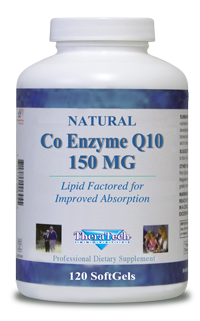
Products
Browse our Products & use our Vitamin Finder.

Become a Partner
Offer TheraTech to your patients.

Order Forms
Are you ready to order? Start here!
Articles
Latest news & resources.
Articles >
Ubiquinol and Autism A group of scientists from Comenius
University’s Pharmacobiological
Laboratory (Bratislava, Slovakia) have
been conducting research on children
with autism. This is a developmental
disorder that manifests within 3 years
after birth, and its causes are thought
to be multifactorial. Scientists studying
autism have suspected factors including
genetic, endocrinological, diet
(which may be related to inability to
properly utilize nutrients) and vaccine
sensitivity. Parents with children affected
by autisms typically notice the
child’s difficulty in social interaction as
well as verbal and non-verbal communication—
most often parents will observe these patterns within 18
months to 2 years of birth. The behavioral
problems may take the form of
hyperactivity, self-harm and aggressions,
and could be accompanied by
sleeping and eating disorders. The
prevalence of autism is staggering,
with some estimates at approximately
two million people in the U.S. afflicted
by the condition. A systematic review
of scientific databases has revealed
that several approaches are being tried
in the treatment of autism, such as
music therapy, melatonin,
|
| *Statements have not been evaluated by the Food and Drug Administration. These products are not intended to diagnose, treat, cure or prevent any disease |


